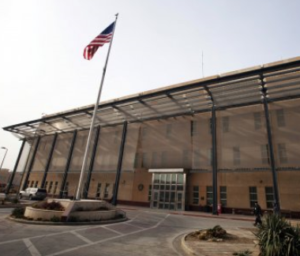Doctor Receives $715,000 Grant to Study of Gulf War Illness

By Debbie Gregory.
A prominent condition affecting Gulf War Veterans is a cluster of medically unexplained chronic symptoms that can include fatigue, headaches, joint pain, indigestion, insomnia, dizziness, respiratory disorders, and memory problems.
Now, a Peoria-based medical school professor has received $715,000 from the U.S. Department of Defense to investigate what might have caused Gulf War Illness.
Dr. Stephen Lasley is looking into how battlefield stress, pesticides and anti-nerve gas drugs have contributed to neurological disorders Gulf War veterans, with the goal of finding treatments that will relieve the suffering or reverse the illness.
“We are to the point now where treatments that we want to apply are less shots in the dark and more based upon research findings. We would like to be able to help the Gulf War veterans who have suffered for more than 25 years now,” Lasley said.
Some of the diagnosed conditions of Gulf War Illness include: Chronic Fatigue Syndrome, a condition of long-term and severe fatigue that is not relieved by rest; Fibromyalgia, a condition characterized by widespread muscle pain; gastrointestinal disorders including Irritable Bowel Syndrome (IBS), functional dyspepsia, and functional abdominal pain syndrome.
More than 700,000 troops were deployed in the Gulf War, and the Department of Defense estimates that as many as 200,000 veterans of that conflict might be affected.
Gulf War veterans do not need to prove a connection between their military service and illnesses in order to receive VA disability compensation if the illness is at least 10 percent disabling, and appeared during active duty in the Southwest Asia theater of military operations, or by December 31, 2016.
Lasley hopes his research will show that existing drugs can provide relief, allowing quick routes to treatment options.
Military Connection salutes and proudly serves veterans and service members in the Army, Navy, Air Force, Marines, Coast Guard, Guard and Reserve, and their families.


























